Certainty With Certified Rubber
- By Juili Eklahare & Gaurav Nandi
- August 23, 2022
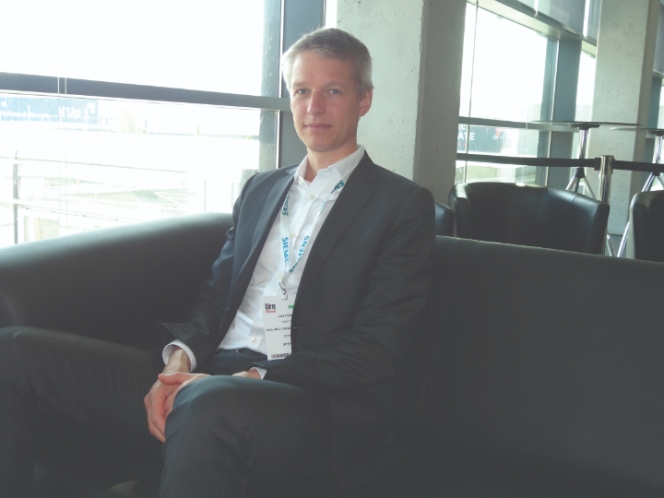
Rubber certainly has its role to play in forest landscapes across the world, with natural rubber plantations having risen as a substantial basis of deforestation. One element that addresses deforestation concerns is the correct certification of rubber – be it natural or synthetic. International Sustainability & Carbon Certification (ISCC), a globally leading certification system, works with the objective of providing sustainability solutions for fully traceable and deforestation-free supply chains, inter alia involving the rubber industry. ISCC was one of the presenters at the Tire Technology Expo 2022 at Hannover, Germany, and Dr Jan M Henke, Director, ISCC, threw light on the nitty-gritty of certifications in the rubber industry, their clients in the tyre and rubber industry and more, in an interaction with Tyre Trends.
Can you tell us about your global sustainability scheme?
Our global sustainability and carbon certification scheme has certified companies in more than 100 countries. We certify entire supply chains from farms to plantations and forestry, and also the point of origin of waste and residues, biogenic and fossil waste. This is also covering rubber and natural rubber. Moreover, we cover biogenic waste and residues, including fossil waste, like carbon black, which is, again, used in the rubber industry. We also certify pyrolysis, where recycled mixed plastic waste can help produce synthetic rubber out of the pyrolysis oil. And we certify the entire supply chain, sustainability of raw material.
What is Meo’s role?
Meo initiated ISCC in a multi-stakeholder process a long time ago. It once was a Meo project and went on to become an operations and certification scheme. It was even recognised by the European Commission and some other authorities. It later got segregated from Meo, and ISCC is governed by the ISCC Association with more than 200 members.
So, what role does Meo play in this in case of certification?
Certification is always by independent, third-party certification bodies. ISCC is the standard development. Today’s ISCC was once a project of Meo. It then went on to become independent and operational, and was no longer a project but an individual entity running and further developing and improving the certification scheme.
The operations of the certification system, database, registration, qualification, training programme, integrity programme, the website and all the day-to-day business is done by ISCC. We are currently incorporating 45 certification bodies that are actually doing the on-site audits based on the ISCC standard.
Is ISCC recognised by the European Union?
Yes, it is being used in many sectors, like in bio energy, bio fuel, renewable transport fuels etc. In fact, ISCC is also recognised by the European Commission and by companies based on their sustainability standards and different industry initiatives.
Hence, ISCC is active on a really broad scale, covering different types of raw materials, natural rubber being one of them. We are also covering waste and residues for pyrolysis and their outputs. We then go to all the different end markets, which can be polymers, rubber, tyres, packaging, all types of plastic products, bio energy or any type of renewable fuels, aviation fuels, maritime fuels etc. This is global and is being used in more than 100 countries.
Tyre companies are talking about sustainability, but the larger part of the industry is of small stakeholders, especially in the natural rubber segment, where traceability and accountability are the main issues. How do you see this?
That’s a big challenge, especially in rubber production. At the cultivation level, there are a lot of small holders. There also exist large plantations that are easier to implement and certify. However, it’s definitely a bigger challenge with the small holders; it always depends on how well they are organised, whether there are certain structures, cooperatives or some central units.
Can you tell us about the certification of natural rubber?
The certification of natural rubber is definitely possible. Palm oil is maybe another example where the setup is quite similar sometimes. Also, with respect to the small holders, sometimes the companies are the same. Furthermore, we are very active in the palm oil sector with ISCC. We now also see a demand for natural rubber sustainability certification.
Is there a different process for getting certified in the rubber industry or is it a standard process?
It’s a standard process. It works on plantation. In fact, it works more or less the same as for palm plantations. But you certainly need to make sure that all the small holders reach a certain level, which is difficult. So starting out, bigger plantations may be easier because it’s easier for them to properly prepare for the certification audits. And then, you need to involve more farmers, step by step.
Who decides the standard process to get the certifications?
ISCC develops the standards and the requirements in the multi-stakeholder process. It then comes down to a company saying that it wants to become certified, use ISCC and also make certain claims and communications to its customers and stakeholders. They then reach out to a certification body, that is cooperating with ISCC. Following this, the certification body will do the audit on site – the third-party auditor will also make a decision on the issuance of the certificate.
Can tyre manufacturers get different certifications? For instance, one for natural rubber and another one for synthetic rubber? Or do they get one for all?
If tyre manufacturers source raw material for manufacturing from natural rubber but also synthetic rubber and everything under ISCC, then it’s one audit. Then the auditor would look into aspects of the volume of natural rubber being used that has been certified, although upstream. If one buys from certified suppliers and if the same auditors check, then aspects like the share of the certified synthetic rubber being used, the share of carbon black, etc. are taken into account. And finally, everything can be put together and a certain claim can be made.
Can tyre companies get a separate certificate for natural rubber?
Yes, they can. They can have separate certificates for natural and synthetic rubber both, or even of everything together. As for the final tyre, let’s say, if it’s 20 percent natural rubber and 20 percent synthetic rubber (40 percent of the tyre), then they can make certain sustainability claims on use of sustainable, circular materials etc.
What is the value of a certification?
It’s no deforestation – that’s key when it comes to natural rubber. When you certify, ‘no deforestation’ is the core requirement and deforestation is not allowed under ISCC. It is about additional environmental and social human rights criteria. This fits fine in this part of ISCC’s sustainability standard. And then it’s certainly about traceability in the supply chain, all the way in the end to the final tyre. And if this is established, then you can certainly make claims about the rubber or the final tyre, saying that it has been sustainably produced, based on sustainably sourced raw materials etc.
Plus, if you do this in a smart way, then you can actually cover the natural and synthetic rubber. Natural rubber and synthetic rubber are both very important parts of the final tyre. Both can be covered under ISCC.
Deforestation is a big issue, mainly in Southeast Asian and African countries. How difficult is it to keep an eye on that?
It’s not always easy to handle. Deforestation is not allowed under ISCC; there is a cut-off date of January 2008. If there was deforestation after January 2008, one cannot become certified. However, replanting or a change from palm to rubber is not considered as deforestation.
For example, if you have a palm plantation and if you cut it and plant rubber after 25 years, then that’s not deforestation. That’s just normal replanting.
Also, ISCC is certainly doing assessments, supported by remote sensing. Our core principle is no deforestation, which is very important to ISCC and its stakeholders. ISCC is not just us doing the operations in Cologne; there’s the ISCC Association for the multi-stakeholder dialogue. It has over 200 members from entire supply chains, industries, plantation companies, mineral oil, chemical companies, converters etc. We also have research organisations from different regions involved. In fact, also a number of non-governmental organisations are members of the ISCC Association.
The association meets annually and makes important strategic decisions and elects the ISCC Board. Due to the representation of the research sector and non-governmental organisations, there is quite a good balance of what people want and further development.
Can you tell us about the commercial benefits involved in having a certification?
There is a big value in it. It reduces sustainability risks for companies, helps to establish monitoring, protects the license to operate and has commercial value. For example, the OEMs ask for more sustainable products or lower greenhouse gas emissions. They all have climate neutrality commitments in place and need to start delivering step-by-step now; they need to show what are the activities that they are engaged in and how those improve sustainability in the overall supply chain. Here, ISCC certification can be used.
How do you maintain transparency in certification as a third party?
There is an annual audit. The certificate is valid for one year and then there is a re-certification. The company needs to provide evidence in every re-certification that the rules are being followed. And if they are not, a renewal of the certificates is not possible.
We certainly have quality management and training for companies and the auditors as well, who conduct on-site audits. What’s more, we have our own integrity programmes, where we send out our own auditors. These auditors work for ISCC and double-check the performance of the companies and the work of third-party auditors. Therefore, this integrity programme is key. We have the website where all the certificates are being published and the entire standard is public.
Do you help companies improve their sustainability supply chain?
No, we don’t consult. At ISCC, we are not involved in supporting the companies in order to improve. We have the standard and we conduct the training for companies. The preparation for the audit is not where ISCC is involved; it’s independent from that type of work. And the certification bodies are not allowed to consult in parallel either. ISCC is the independent standard that is used to certify that companies fulfil the sustainability requirements.
What are the other segments that you cover in the tyre industry?
It’s the entire supply chain. Petrochemical industries, tyre manufacturers etc. can all be covered. This also includes everything from plantations to the end product in the tyre industry.
Which is the easiest and the toughest one to certify?
All elements of the supply chain need to be covered.
This can sometimes be a challenge in the beginning, so as to convince your suppliers and also get certified. But, in truth, we have more than 6,000 certificates under ISCC. So there are already a lot of players that have valid certificates, and now this is starting to move into the space of rubber and tyre manufacturers.
Can you tell us about your clients in the rubber and tyre industry?
We have requests from many tyre producers right now. Some producers are certified already. Plus, we have requests for carbon black and first requests for natural rubber. We see the number of requests increasing, and we do have first certificates and first registrations from tyre producers. So we expect this to rise further as the industry needs to show compliance with their sustainability and climate neutrality commitments.
We see the entire tyre industry now targeting sustainability. So how do you find more opportunities and what’s your plan to get more client support?
ISCC started to get really further engaged in the rubber and tyre industry about a year ago; the industry has started understanding the standards, participating in ISCC trainings, joining our stakeholder events etc. Therefore, step by step, they got to know ISCC better and what it could do for them. They have now even started to get involved and do certifications, including reaching out all the way to the cultivation of natural rubber.
Are you going to focus on the Asian market?
Yes. In fact, we already have a few hundred certificates in Malaysia, Indonesia and other countries in the region. These markets are truly important. Our other key markets are North America and Europe, while we are also active in Africa and South America.
We are, eventually, trying to do more and convince people to become certified, show compliance to sustainability requirements, engage in a continuous improvement approach to become more sustainable and then allow manufacturers to really make claims.
- INDIAN TYRE INDUSTRY
- TYRE RETREADING
- BIS STANDARDS
- IS 15704
- ECE R109
- CIRCULAR ECONOMY
- MSME CHALLENGES
- AUTOMOTIVE REGULATION
- CARBON REDUCTION
- FREIGHT
- LOGISTICS
Retreading Hangs In Balance Over Regulatory Conundrum
- By Gaurav Nandi
- December 30, 2025
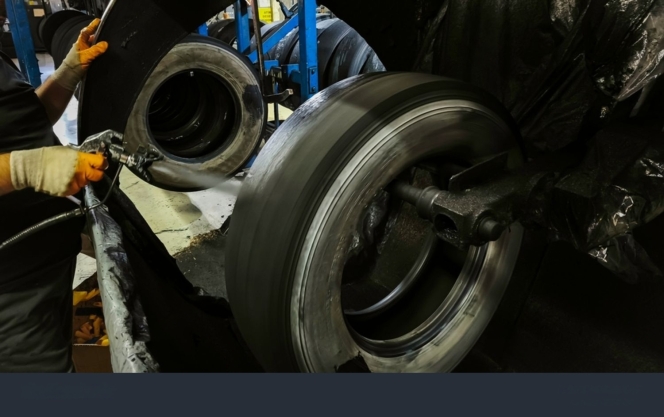
A population of over 1.4 billion people catapulting into the world’s third largest automobile market with four million trucks plying across a road network of 6.3 million kilometres supported by a USD 13.4 billion tyre market and a mining sector contributing around 2–2.5 percent of the country’s GDP demonstrate the strength of India’s automobile, freight and tyre sectors.
The story doesn’t end there as the Central Government adopts a strategic approach on reducing carbon emissions across these verticals, especially automobile and tyres, with targets such as the Net Zero Carbon Emissions by 2070, battery electric vehicles target by 2030, zero-emission truck corridors, Extended Producer Responsibility for the tyre sector; the list just goes on.
Amidst all such statistics and targets, a silent spectator remains the old and varied sector of tyre retreading. In a recent news story reported by Tyre Trends, the Indian Tyre Technical Advisory Committee (ITTAC) had made a proposal to Tyre Retreading Education Association (TREA) for mandating certain standards that will improve the quality of retreads. ITTAC has made recommendations to the BIS committee. TREA is part of the same committee. ITTAC and TREA are recommending different standards.
These standards included BIS retread standards, namely IS 15725, IS 15753, IS 15524 and IS 9168. The ITTAC had partially aligned Indian requirements with ECE R109, the European regulatory benchmark.
In a reply to the proposal, which was accessed by Tyre Trends, TREA urged the Indian Tyre Technical Advisory Committee to seek a deferment or non-applicability of BIS standard IS 15704:2018 for retreaded commercial vehicle tyres, warning that mandatory enforcement could cripple the sector.
In the letter, TREA argued that IS 15704:2018 is largely modelled on new tyre manufacturing norms and is technically unsuitable for retreading, which is a restoration and recycling process.
The standard mandates advanced laboratory tests such as spectrometer-based rubber analysis, endurance testing and compound uniformity checks, requirements that most retreading units, particularly small and medium enterprises, are not equipped to meet
The association highlighted that even large retreaders lack the infrastructure and skilled manpower needed for BIS-grade testing, while the sheer number of retreading units would make inspections and certifications operationally unmanageable for regulators.
TREA warned that compliance costs linked to machinery upgrades, audits and quality control could force 70–80 percent of units to shut down, leading to job losses, higher fleet operating costs and adverse environmental outcomes due to reduced recycling
Instead, TREA proposed that BIS prioritise retreading-specific standards such as IS 13531 and IS 15524, which focus on materials, process control, safety and quality consistency.
The body has also called for a phased transition roadmap, MSME support and industry training before any stricter norms are enforced, stressing that abrupt implementation would undermine the sector’s role in India’s circular economy.
The conundrum
India has a total of 36 administrative divisions comprising 28 states and 8 union territories. The tyre retreading sector has been continuously supporting circularity goals since the early 1970s across the world’s largest economy without getting mainstream recognition.
Even after five decades in service, the industry battles different bottlenecks including fragmentation, manpower shortage, tax pressures brought about by the recent GST revisions and now the implementation of such standards, just to name a few.
The sole practice that can simultaneously reduce carbon emissions from tyres and extend tyre life is assumed the nemesis of an ‘infamous and dangerous practice’ in some states of the country.
However, the industry has been drawing its techniques and quality parameters from the world’s oldest retreading economy, Europe.
“Big retreaders in India already have the necessary processes in place that conform to IS 15524 standards. However, as the standard is not yet mandated, we have voiced support for it because it is process-oriented and outlines how retreading should be carried out, including buffing and building procedures,” said TREA Chairman Karun Sanghi.
He added, “This standard focuses on how the work is done rather than imposing product-level testing that cannot be practically implemented. The current debate on IS 15704 stems from it being fundamentally incompatible. The standard includes requirements such as sidewall marking and destructive testing of retreaded tyres, which are impractical in a retreading environment where each tyre differs in brand, size, application and usage history,” he added.
Destructive testing, he argued, assumes uniform batch sizes. In retreading, where every casing is unique, testing even a single tyre would mean destroying finished products without yielding representative results. Applying such a framework would effectively require the destruction of every tyre in a batch, making compliance unviable.
“We have submitted our response to ITTAC and are awaiting feedback from the committee. We remain open to continued dialogue and will engage further once the committee responds to our submission,” said Sanghi.
According to him, a typical retreader processes about 300 tyres a month across multiple brands including MRF, JK Tyre, Apollo and Michelin and applications ranging from buses and trucks to mining vehicles. These casings vary widely in load cycles, operating conditions and duty patterns, often across several models from the same manufacturer.
The committee has cited European standard ECE R109, but Sanghi points to structural differences: “Europe is a global retreading hub where tyre manufacturers such as Michelin and Bridgestone dominate operations, collect their own tyres, retread them and return them to fleets, making batch-based destructive testing relevant. A similar model exists in US, where large tyre companies lead retreading and largely self-regulate without a single overarching standard. The Indian scenario is different, especially with a fragmented market.”
He stressed that the industry is not opposed to standards but to those that cannot be practically applied, warning that adopting European manufacturing-oriented norms without accounting for India’s market structure and operating realities would be counter-productive.
The debate is no longer about whether standards are needed but whether they are fit for purpose. Without accounting for India’s fragmented retreading ecosystem, enforcing impractical norms could dismantle a circular industry in the name of compliance.
TGL Season 2 Kicks Off With Hankook As Founding And Official Tire Partner
- By TT News
- December 29, 2025
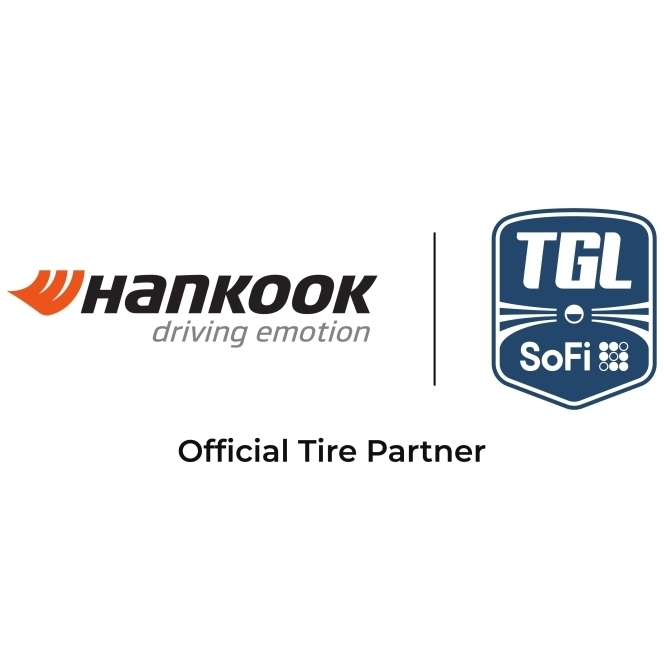
The second season of TGL Presented by SoFi, where Hankook Tire serves as the Founding and Official Tire Partner, commenced on 28 December 2025. This innovative league, a venture of TMRW Sports with backing from icons like Tiger Woods and Rory McIlroy, represents a strategic alignment for Hankook, uniting two entities driven by technological advancement. The partnership provides a global platform to reinforce Hankook's premium brand positioning across North America and worldwide through extensive visibility during broadcasts and at the state-of-the-art SoFi Center in Florida.
This unique venue embodies the league's fusion of sport and technology, featuring a massive simulator with a dedicated ScreenZone and a dynamic GreenZone. This area, equipped with a turntable and over 600 actuators, meticulously replicates real-world golf conditions indoors, creating an immersive arena experience. The competition itself is fast-paced and engaging, with teams of PGA TOUR players competing in Triples and Singles sessions over 15 holes. Innovative elements like the point-doubling ‘Hammer’, real-time strategy via ‘Hot Mic’ and a Shot Clock ensure a dynamic spectacle for fans.
The season opener presented a compelling narrative as a rematch of the inaugural finals, pitting the undefeated Atlanta Drive GC, featuring Justin Thomas and Patrick Cantlay, against a determined New York Golf Club squad led by Matt Fitzpatrick and Xander Schauffele. This match set the tone for an intensive season running through March, where six teams and 24 top golfers will compete. For Hankook, this partnership is more than signage; it is an active engagement with a global community, delivering a distinctive brand experience that bridges cutting-edge mobility and sport for enthusiasts everywhere.
Dunlop Secures CDP ‘A List’ Recognition For Climate Change And Water Security
- By TT News
- December 29, 2025
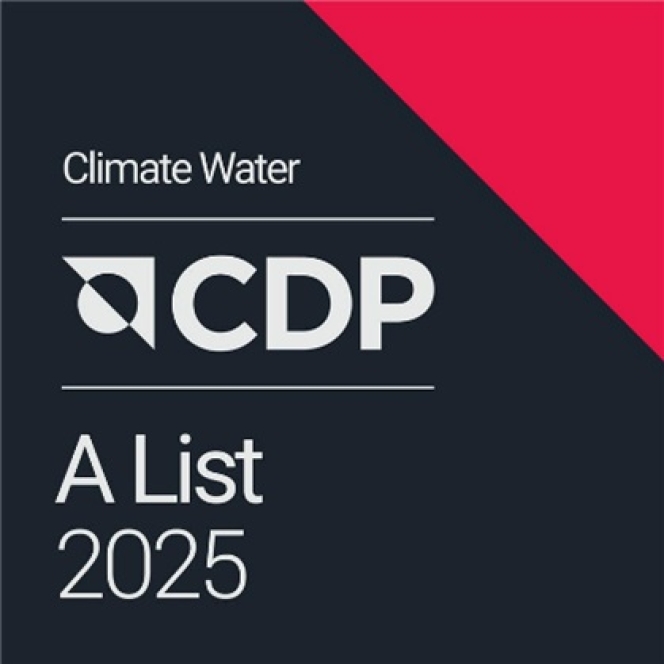
Dunlop (company name: Sumitomo Rubber Industries, Ltd.) has made its way to the annual A-List of CDP for climate change and water security. This premier designation, awarded for the first time to the company in the 2025 evaluation, recognises world-leading performance in transparency, risk management and environmental action. CDP’s annual assessment is a key benchmark for corporate sustainability across climate, water and forests.
This achievement stems from the Group’s integrated approach to material issues outlined in its corporate philosophy. It treats the interconnected challenges of climate change, biodiversity and the circular economy holistically, advancing concrete initiatives under its long-term ‘Driving Our Future’ sustainability policy.
On climate, the Group’s science-based emission reduction targets for 2030 are validated by the Science Based Targets initiative. Operational efforts include pioneering green hydrogen production at its Shirakawa Factory and developing tyres made entirely from sustainable materials by 2050. The company also works to reduce emissions across its supply chain, lowers tyre rolling resistance to improve vehicle fuel economy and extends product life through retreading.
For water security, the strategy is driven by localised risk assessments at global production sites. In seven facilities identified as high-risk, the goal is to achieve 100 percent wastewater recycling by 2050. Progress is already evident, with the company’s Thailand factory reaching full wastewater recycling in 2024.
These coordinated actions on multiple environmental fronts formed the basis for the Group’s simultaneous top-tier recognition in both critical categories from CDP.
Bridgestone Launches Co-Creation Initiative With Ethiopian Airlines Group
- By TT News
- December 29, 2025
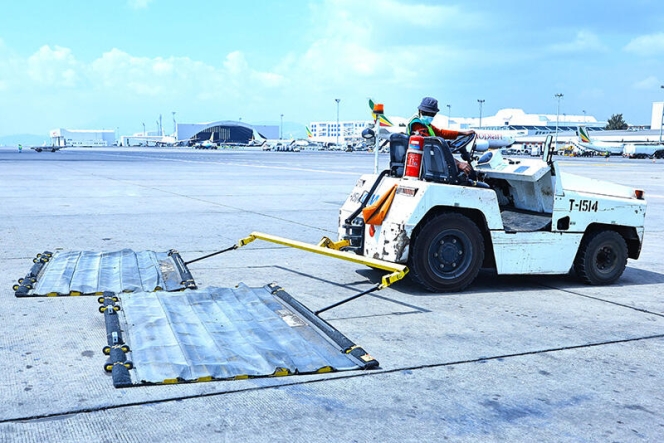
Bridgestone Corporation has initiated a novel co-creation programme in partnership with Ethiopian Airlines and Ethiopian Airports, focused on enhancing aviation safety at Addis Ababa Bole International Airport. This marks Bridgestone’s first sustained three-way collaboration with both an airline and an airport authority, targeting the reduction of Foreign Object Debris on runways and taxiways to support safer and more reliable aircraft operations.
The project was prompted by tyre-related incidents linked to debris at the airport, which previously risked disrupting flight schedules. Leveraging its specialised system for inspecting used airline tyres and analysing debris data, Bridgestone assessed conditions at the hub and proposed a tailored action plan. The company provided continuous support by analysing debris distribution patterns, developing visual hazard maps, advising on efficient collection methods and conducting training to raise awareness among airport personnel.
These sustained efforts have yielded significant results, substantially lowering the rate of tyre damage caused by runway debris compared to levels before the collaboration began. This reduction has supported improved on-time performance for Ethiopian Airlines while advancing overall operational safety. Additionally, the initiative has encouraged greater use of retreaded tyres, promoting economic efficiency and environmental sustainability within the airline’s operations.
Looking ahead, Bridgestone and Ethiopian Airlines Group plan to deepen their co-creation efforts, aiming to generate further value for the aviation sector and broader society through continued innovation and partnership.
Retta Melaku, Chief Operating Officer, Ethiopian Airlines, said, "At Ethiopian Airlines, the safety of our passengers, employees and aircraft is a priority. We are pleased to collaborate with Bridgestone to further strengthen our efforts in reducing FOD at Addis Ababa Bole International Airport and ensure safe operations at the hub airport."
Getaneh Adera, Managing Director, Ethiopian Airports, said, "We remain fully committed to upholding the highest safety standards at Bole International Airport at all times. This significant achievement in reducing FOD is the result of our strong commitment for safe operations and close collaboration with Bridgestone. Through our co-creation activities, we are pleased to have realised safer operations with enhanced productivity and economic value."
Jean-Philippe Minet, Managing Director, Bridgestone Aircraft Tire (Europe) S.A., said, "By combining the learnings and insights from Ethiopian Airlines' operational issues with our analysis technology and know-how, we have deepened our co-creation to propose customised solutions. We are delighted to contribute to safe aircraft operations with peace of mind and to improved operational productivity through the co-creation of efficient FOD reduction on airport surfaces. Through further expansion and evolution of this solution, we will amplify the value of our ‘Dan-Totsu Products’, trust with our customers and value of the data for creating new value."







Comments (0)
ADD COMMENT